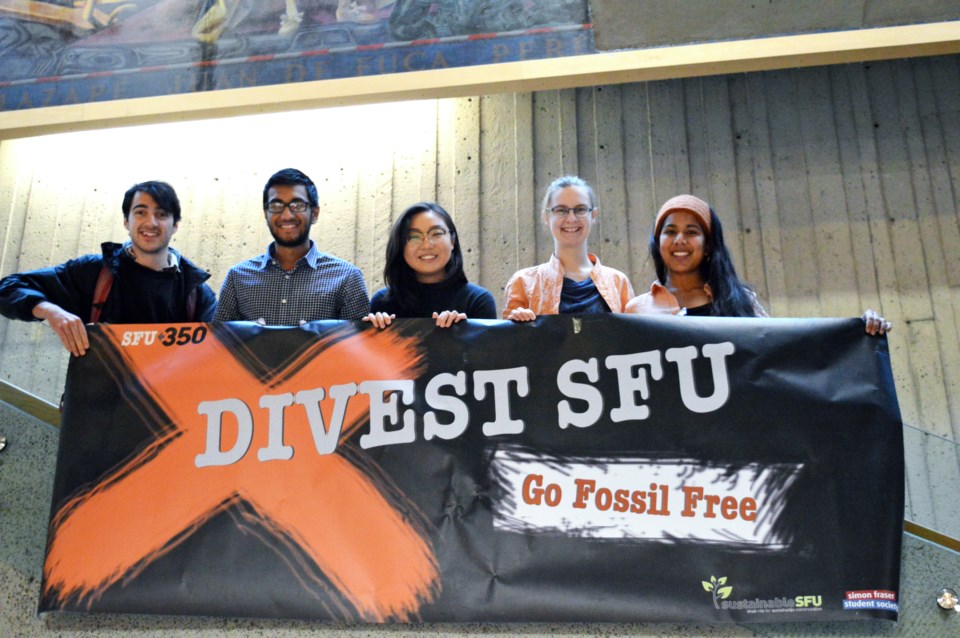Asking fossil fuel companies to reduce their carbon footprint is like asking McDonald’s to stop making burgers, according to an SFU student group pushing for the university to rid itself of investments in oil and gas companies.
That’s why SFU350 will continue to push for full divestment even as the university has agreed to decrease its investment portfolio’s carbon footprint by at least 30 per cent by 2030.
SFU’s board of governors voted last Thursday to approve the 30 per cent reduction on a recommendation from its responsible investment committee.
“Decreasing the carbon footprint of investment portfolios is more likely to reduce greenhouse gases than simply divesting from fossil fuel companies, particularly if this approach is adopted by others,” SFU board deputy chair Julia Kim in a press release.
SFU president Andrew Petter has told media full divestment was not practical because many of the university’s investments are in pooled funds. The university has a $700 million dollar investment portfolio and it doesn't have any direct investments in fossil fuel companies.
He also noted full divestment would mean losing any impact the university might have in getting companies to change their behaviour.
SFU350 co-president Tessa Ramburn, however, maintained there’s never been an example yet of shareholder engagement making any difference to a fossil fuel company’s carbon footprint.
“That’s like asking McDonald’s to stop making burgers,” she said. “It’s at the base of their practices themselves.”
And if the university intends to reduce its carbon investments by 30 per cent, it will have to sift through its pooled investments anyway, so full divestment should also be possible, according to Ramburn.
“I believe the university is still trying to navigate how to go through that process,” she said. “Once this has been done for the 30 per cent, I think it would be possible for 100 per cent.”
But the board’s decision last week was an important step, according to Ramburn.
“The strength of the divestment movement is that it removes the social licence that fossil fuel companies have in society,” she said. “That’s why when universities or any other institutions divest, they’re making a statement that fossil fuel companies are not OK to be invested in in the society we live in in the context of global climate change. So, in that sense, that statement that SFU has made is very powerful.”
SFU350 has been advocating for full divestment since the group formed in 2013.
The group’s influence was noted by Petter last week, who said the group’s advocacy was “instrumental in encouraging the university to develop its new policy,” according to an SFU press release.
“When we first started the campaign, the university did not have a responsible investment committee or a responsible investment policy,” Ramburn said.
The responsible investment committee was formed in spring 2014 and the policy adopted in May 2015.
SFU350 has also pushed for greater transparency in relation to the university’s investments, and the first custodial report on SFU’s portfolio was released in May 2015
“They weren’t complete but it was a first step towards transparency,” Ramburn said.
She said SFU started looking into the 30 per cent reduction – in line with Canada’s national climate commitment – after the University of Ottawa made the same commitment in April.
Ramburn said the university has been “very open” to having conversations with her group and considering its input on the policy.



